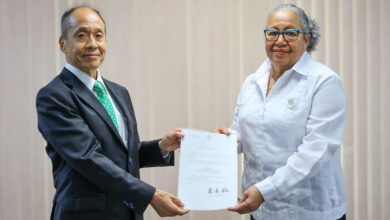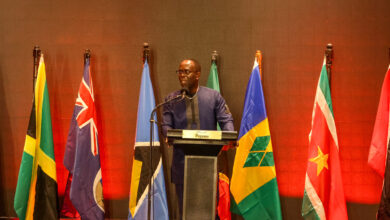Heads of Government of the Caribbean Community (CARICOM) have given a renewed commitment to tackling non-communicable diseases (NCDs) in their countries. The matter was raised by Prime Minister Mitchell during the closing press conference of the 38th CARICOM Summit, in Grand Anse, Grenada. In speaking to the issue, Prime Minister Mitchell highlighted that it had been 10 years since the historic Port-of-Spain Declaration on NCDs.
The Grenadian Prime Minister said the Heads were aware that the Region had fallen behind in the battle against these deadly diseases and also in fulfilling the goals of the declaration. He said one of the most alarming signs was the high incidents of childhood obesity, a major risk factor for NCDs
“We simply cannot afford to continue the lifestyle and food consumption patterns which are literally killing us”, he said.
Prime Minister of Jamaica, the Most Hon Andrew Holness, who also spoke at the media briefing, expressed similar concerns to those raised by Prime Minister Mitchell. He said these diseases were of concern in Jamaica. He reiterated his country’s support for the various efforts being taken in the Region, particularly as it relates to smoking, sugars and the consumption of sweetened drinks.Prime Minister Holness disclosed that the Heads discussed the issue of using fiscal measures such as taxation to address the problem. He also advised that Jamaica has adopted a programme called ‘Jamaica Move’ which encourages citizens to engage in a more active lifestyle.
Secretary-General of the Caribbean Community, Ambassador Irwin LaRocque, reiterated his stance that each citizen of the Region had a responsibility for his/her health.
“We can put our rules and regulations, we can put our tobacco labeling we can enforce taxes on sweets and so on, but everyone of us has a responsibility for our lives as well. We do! We are the ones who feed ourselves; we are the ones who consume saturated fats, and we are the ones who are contributing to our own ill health”.
He said Member States would continue to do what they have to do including embarking on more public education and utilising a holistic approach to address the issue.





